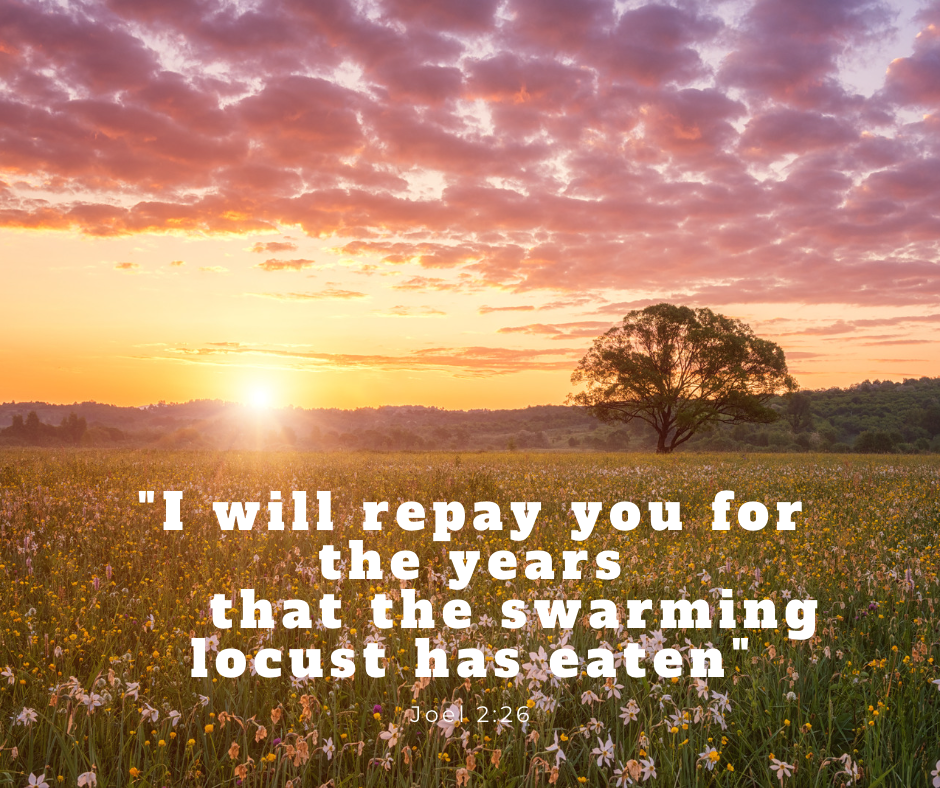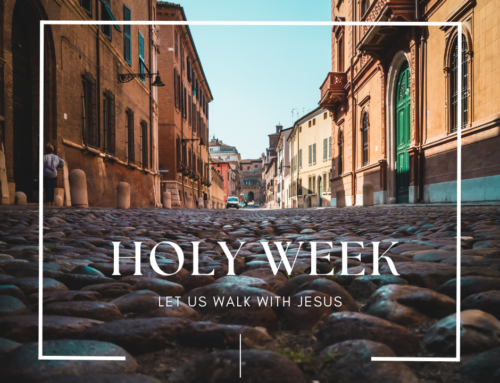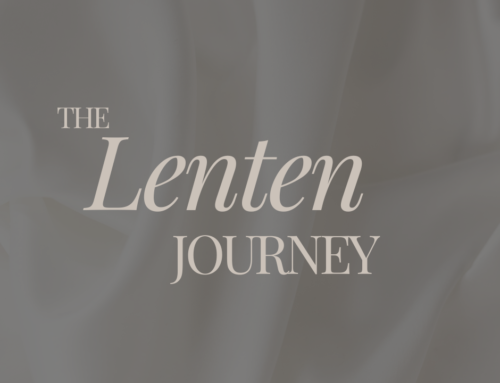The prophet Joel is not the most uplifting book of the Bible. It focuses on the ecological disaster facing Israel—a locust horde had devastated the land. In an agrarian and subsistence farming culture, this was beyond dangerous. Entire harvests gone.
Joel 2:23-32 says this:
O children of Zion, be glad,
and rejoice in the Lord your God,
for he has given the early rain for your vindication;
he has poured down for you abundant rain,
the early and the later rain, as before.
The threshing floors shall be full of grain;
the vats shall overflow with wine and oil.
I will repay you for the years
that the swarming locust has eaten,
the hopper, the destroyer, and the cutter,
my great army that I sent against you.
You shall eat in plenty and be satisfied
and praise the name of the Lord your God,
who has dealt wondrously with you.
And my people shall never again be put to shame.
You shall know that I am in the midst of Israel
and that I, the Lord, am your God and there is no other.
And my people shall never again be put to shame.
Then afterward
I will pour out my spirit on all flesh;
your sons and your daughters shall prophesy,
your old men shall dream dreams,
and your young men shall see visions.
Even on the male and female slaves,
in those days I will pour out my spirit.
I will show portents in the heavens and on the earth, blood and fire and columns of smoke. The sun shall be turned to darkness and the moon to blood, before the great and terrible day of the Lord comes. Then everyone who calls on the name of the Lord shall be saved, for in Mount Zion and in Jerusalem there shall be those who escape, as the Lord has said, and among the survivors shall be those whom the Lord calls.
Like I said, not super uplifting. Yet many of us can probably relate to this apocalyptic feeling. This small apocalypse feels familiar in our world right now—ecological disaster all around, continued fall-out from a global pandemic (that is still happening), humanitarian disaster after humanitarian disaster, war and global conflict, a bitter denominational split, midterms just around the corner when many of us are made sick at the thought. It sounds a lot like the apocalypse that Joel just described.
Yet, this is a passage of promise. It is saturated with hope. The promise here is of God’s Divine Restoration—to restore more than the locusts have taken.
More than we have lost, God promises to restore.
You might have even recognized part of this passage. This is the prophetic word that is quoted in Acts 2, the passage we read each Pentecost—“I will pour out my spirit on all flesh; your sons and daughters shall prophesy…I will pour out my spirit.”
Joel speaks to God’s people, promising God’s restoration, and centuries later, the followers of Jesus remember these words and connect it to the Spirit’s outpouring at Pentecost. Who could have possibly guessed?!
The promise of God to restore and renew and heal may not look like what we expect. It will almost certainly surprise us. God is in the business of surprising us with resurrection where we see only death.
So during this season that feels like apocalypse, remember that the word “apocalypse” means “unveiling” or “revealing.” The word doesn’t point toward destruction but to God revealing what we haven’t yet had eyes to see. Remember that even in the midst of dark days, that God’s promises are indeed still coming. Remember that, like the prophet Elijah, sometimes the holiest thing we can do when it feels like everything is falling apart is to eat a snack and take a nap. And then remember the words of Joel—that God will restore more than we’ve lost.
– Pastor Megan Madsen





